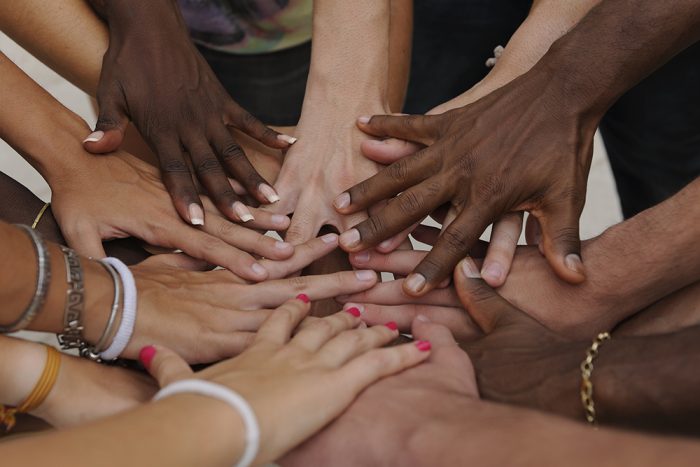DHS Racial Equity Action Kick-Off – Day One
Good morning,
I hope you all had a good weekend! Today is the first day of the Department of Human Services’s (DHS’s) Racial Equity Action Kick-Off, and we’re going to start the week with a foundational overview on racial identity – how it is established and how it influences our lives. When you have time, please read the Summary of Stages of Racial Identity Development from the Racial Equity Tools website. That website is a wealth of information, and I highly encourage you to peruse their resources, particularly the Core Concepts as they give a strong overview that can help guide these conversations as we move forward. Another great source is The New York Times’s Conversations on Race Series. Through this series, you can learn about how race affects a person’s daily life directly from people of different races, ages, genders, and other varying perspectives that influence their experiences and world views.
Our social identities can shape our world view. How I experience the world as a woman is different from how a man experiences life and society. At the same time, how I experience the world as a white woman is different from how a woman of color experiences life and society. Recognizing that the experience of life is not “one size fits all” and that our identities shape our realities is critical in building empathy and understanding. Without empathy and understanding, we cannot progress. In addition to social identities, other factors can also influence our perspectives and experiences. Variables such as income and education level can, in some cases, serve as barriers for people and add to their personal challenges in life. You may be familiar with the term intersectionality – this term speaks to the interplay between social identities and barriers. Kimberlé Crenshaw, a scholar and professor at both the University of California at Los Angeles (UCLA) School of Law and Columbia Law School, gives an overview of intersectionality in an article included in 12.7 articles. There are also numerous other speeches and articles from her if you are interested in learning more.
I’m sure most of you have heard the term “white privilege” in the last couple of years. This term is one that people often misunderstand. White privilege does not assume that white people are exempt from struggles or challenges in life. Rather, the term works to point out the inequitable access to power, resources, and social currency that white people have in comparison to their black and brown equivalents. “What is White Privilege, Really?” from Teaching Tolerance (available in the 12.7 Articles PDF) details what privilege can mean, including how it affects people even if they do not feel that they experience privileges in their lives. If this term has been confusing or alienating, I encourage you to delve a little deeper because, in that discomfort, you may find an opportunity for learning, reflection, and empathy for others who do not have this privilege.
As you read and watch these resources, I encourage you to think about the following questions:
- What is a racial identity? How has my race impacted my life?
- How were my ideas and beliefs about race formed?
- Have you previously considered your own racial identity? If so, how? Do you feel your race influences your life? If no, what do you think your life would be like if that answer were yes?
- What is intersectionality? Am I impacted by intersectionality? If you are not, can you think of someone in your life who is impacted by intersectionality?
- Do you believe you have experienced privilege? Do you believe you have experienced marginalization? Has this ever affected your day-to-day life? Interactions?
I also encourage you to have these conversations with your coworkers as you are comfortable and able. This is an opportunity for us to learn together, share our experiences, foster understanding and community, and build stronger bonds through these difficult but extremely necessary conversations. Remember, these articles are meant to be a foundation and introduction that you can build from. They are not the only sources and perspectives on these issues.
Talk to you tomorrow,
Teresa Miller, Secretary of the Department of Human Services










